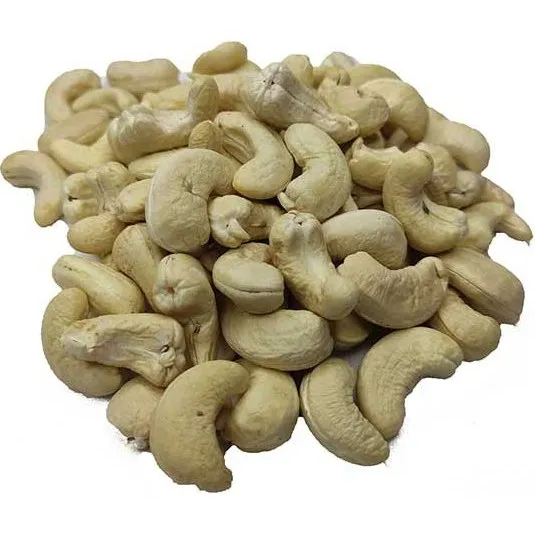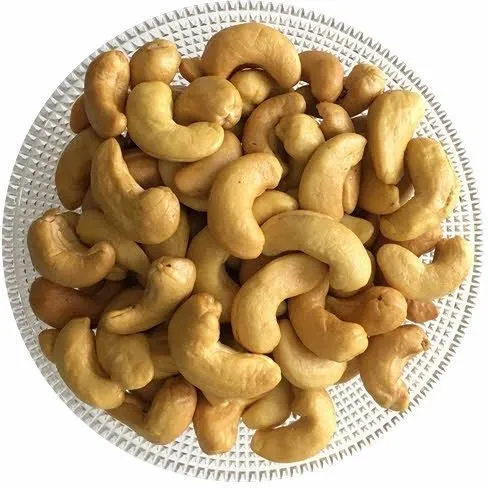Roasting is an essential process in the production of cashew kernels, as it enhances the flavor, texture, and overall quality of this popular nut. Cashews are native to Brazil, but today they are cultivated and processed in several countries around the world, including India, Vietnam, Nigeria, and Ivory Coast. The roasting process is a critical step in the cashew kernel production, as it not only brings out the natural flavors but also improves the shelf life of the nut.
Roasting cashew kernels involves the application of heat to the raw nuts, causing a series of chemical reactions that result in the desired flavor, color, and texture. It is a delicate process that requires precision and careful monitoring to prevent over or under roasting, which can greatly affect the final product quality. The methods of roasting cashews can vary, but the most common techniques include dry roasting, oil roasting, and steam roasting.
Dry roasting is the most popular and traditional method of roasting cashews. In this process, the raw cashew nuts are heated in a dry roasting machine, which can be a rotary drum or a hot air roaster. The nuts are heated evenly with the help of constant tumbling or circulation of hot air, ensuring that they are roasted uniformly. Dry roasting retains the natural flavors of the cashew kernels and results in a slightly crispy texture.
Oil roasting is another prevalent method used for roasting cashews. In this process, the cashew nuts are immersed in oil and heated until they reach the desired roasting level. The use of oil in roasting enhances the flavor and texture of the cashews while also providing a protective coating that helps preserve their freshness. The type of oil used can vary, and some popular choices include sunflower oil, peanut oil, or vegetable oil. Oil roasted cashews tend to have a richer taste and a slightly softer texture compared to dry roasted cashews.
Steam roasting is a newer and less common method yet gaining popularity due to its potential health benefits. In steam roasting, the cashew kernels are exposed to steam to heat them. This method allows the nuts to retain more nutrients and reduces the amount of oil required for roasting. Steam roasted cashews have a lighter and less oily taste compared to those roasted with oil. They also tend to be slightly softer and more tender.
Roasting cashews not only improves their flavor but also has several other benefits. The roasting process helps in the removal of the cashew shells, which contain a toxic oil called urushiol. Roasting destroys this oil, making the cashew kernels safe for consumption. Additionally, roasting enhances the shelf life of cashews by reducing the moisture content, preventing the growth of bacteria, and delaying rancidity.
The roasting time and temperature for cashews can vary depending on the desired level of roasting and the specific method used. Generally, cashews are roasted between 150°C to 180°C (300°F to 350°F) for a duration of 12 to 15 minutes. However, these parameters can be adjusted based on factors such as size, moisture content, and specific customer requirements.
In recent years, there has been a growing demand for specialty roasted cashews. These include flavored cashews such as salted, honey-roasted, or chili-lime cashews. These variations are achieved through the addition of seasonings, spices, or sweeteners during or after the roasting process. This allows for a wide range of flavor profiles to cater to different consumer preferences.
In conclusion, roasting cashew kernels is a vital step in the production process that unlocks the natural flavors and enhances the overall quality of this nutritious nut. The methods of roasting can vary, and each has its own unique characteristics and benefits. Whether dry roasting, oil roasting, or steam roasting, achieving the perfect balance of flavor and texture requires expertise and careful attention to detail. Roasted cashews not only provide a delicious snack but also offer numerous health benefits, making them a popular choice for consumers worldwide.Title: The Business of Roasting Cashew Kernels
Introduction:

Roasting cashew kernels is not only a culinary process but also an integral part of the cashew industry. This article explores the business aspects of roasting cashew kernels, including market demand, production techniques, quality control, and potential challenges faced by manufacturers. Understanding the business side of this process is crucial for cashew producers and processors to meet consumer preferences, ensure product quality, and ultimately, drive profitability.
1. Market Demand for Roasted Cashew Kernels:
Roasted cashew kernels have gained significant popularity among consumers due to their unique flavor, crunchy texture, and versatility. The market demand for roasted cashews is driven by several factors, including changing consumer preferences, increased awareness of the health benefits, and a growing trend towards snacking on healthier options. Cashew manufacturers must stay attuned to market demands to capitalize on the opportunities and stay competitive.
2. Production Techniques for Roasted Cashews:
Various production techniques are employed in the roasting process to achieve the desired flavor and texture for roasted cashew kernels. As mentioned earlier, dry roasting, oil roasting, and steam roasting are the prominent methods. Manufacturers must carefully select the appropriate technique based on cost, quality, and consumer preferences. Additionally, ensuring the consistency of the roasting process is crucial to maintain product quality and meet customer expectations.
3. Quality Control Measures:
Maintaining consistent quality is paramount in the cashew roasting business. To achieve this, manufacturers must implement rigorous quality control measures throughout the production process. These measures include sourcing high-quality raw cashews, monitoring roasting temperatures and times accurately, and conducting regular sensory evaluations to ensure the desired flavor and texture are achieved. Implementing stringent quality control measures not only increases customer satisfaction but also helps build a strong reputation in the market.
4. Packaging and Branding:
Packaging plays a critical role in attracting consumers and differentiating roasted cashews from competitors’ products. Manufacturers need to invest in appealing and functional packaging that preserves the freshness and quality of the cashews. Additionally, effective branding strategies such as unique and eye-catching packaging designs, brand logos, and product differentiation can help in building brand recognition and customer loyalty.
5. Exploring Different Roasting Flavors and Varieties:
To cater to the diverse preferences of consumers, cashew manufacturers can explore different flavorings and varieties of roasted cashew kernels. This includes offering a range of options such as salted, honey-roasted, spiced, or chocolate-covered cashews, among others. Developing innovative flavors and combinations can attract new customers and expand market opportunities.

6. Health and Nutritional Benefits:
Highlighting the health and nutritional benefits of roasted cashews can be a compelling selling point for manufacturers. Cashews are rich in healthy fats, protein, vitamins, and minerals, making them a nutritious snack option. Emphasizing the nutritional profile and the positive impact on overall well-being can help position roasted cashews as a healthier snack alternative.
7. Packaging and Distribution Channels:
Efficient packaging and distribution channels are crucial for the success of any cashew roasting business. Manufacturers must ensure that their packaged products are well-sealed and labeled, compliant with food safety regulations, and have appropriate shelf life. Additionally, establishing strong distribution networks and partnerships with wholesalers, retailers, and online marketplaces can help reach a wider consumer base.
8. Export Opportunities:
The global demand for cashew kernels continues to rise, creating export opportunities for cashew roasting businesses. Understanding international trade regulations, complying with quality standards, and exploring potential trade partnerships can help manufacturers expand their reach and tap into lucrative overseas markets. Identifying emerging markets and adapting products to meet local preferences can provide a competitive edge in the export sector.
9. Challenges in Cashew Roasting Business:
The cashew roasting business is not without its challenges. Rising raw material costs, fluctuating market prices, and intense competition are some of the hurdles that manufacturers may face. It requires strategic planning, efficient cost management, and continuous innovation to overcome these challenges and maintain profitability in a competitive landscape.
10. Research and Development:
Investing in research and development (R&D) is essential to stay ahead of competitors and cater to ever-evolving consumer demands. R&D efforts can focus on improving roasting techniques, developing new and unique flavors, enhancing product quality, and exploring sustainable and eco-friendly production methods. Collaborating with research institutions and engaging in industry conferences and events can provide valuable insights and foster innovation.
Conclusion:

Roasting cashew kernels is not only a culinary art but an intricate business process. The success of cashew roasting businesses depends on their ability to meet market demands, maintain quality standards, and adapt to changing consumer preferences. By understanding the market, investing in production techniques, implementing quality control measures, and exploring innovative flavors, cashew manufacturers can position themselves for growth and profitability in the ever-expanding global market for roasted cashew kernels.










